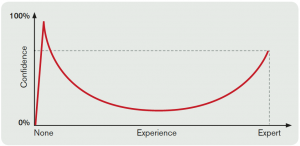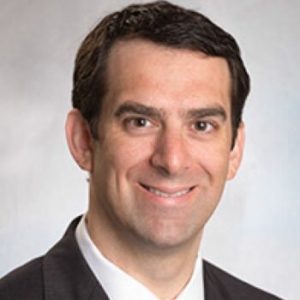In 2012, the world of emergency medicine blogs and podcasts was gaining momentum but was lacking two things: a name and a conference to call its own. Today, we have both: Free Open Access Medical Education (FOAM or #FOAMed) and the annual Social Media and Critical Care (SMACC) Conference.
Explore This Issue
ACEP Now: Vol 34 – No 08 – August 2015SMACC was conceived by a handful of Australian emergency medicine and critical care physicians as a three-day in-person gathering of the growing and passionate community of emergency medicine and critical care providers who spend the rest of the year sharing information online for free. In 2013, SMACC’s first year, more than 700 creators and consumers of #FOAMed descended on Sydney, Australia. From the start, the organizers insisted on dynamic presentations. PowerPoint was not officially banned, but bullet points effectively were. Amazingly, the online ethos of #FOAMed, prizing substance and style in equal doses, genuinely materialized in real life, and a unique entity was born. The following year, the conference moved east to the Gold Coast of Australia and attracted 1,300 delegates. This year in June, SMACC moved out of Australia and came to Chicago (#smaccUS), and for the first time, the conference was acknowledged as an ACEP-accredited conference. More than 2,000 people attended, but unlike most conferences, presenters and delegates included representatives from various disciplines, such as emergency physicians, critical care physicians, nurses, rural practitioners, paramedics, pharmacists—the list goes on. This makes SMACC the only conference I am aware of that consistently brings cutting-edge medical education to multiple disciplines so that we can grow together as a health care community.
Picking actual representative tweets from #smaccUS is impossible. More than an astounding 80,000 tweets tagged #smaccUS were created in June alone by more than 5,000 individual participants. True to the #FOAMed ethos, one need not attend SMACC in order to participate. In fact, each year, all of the lectures and sessions are eventually released for free online. This year, some lectures were broadcast live on the video-streaming app Periscope, further adding to SMACC’s reach.
What would SMACC be without a knowledge bolus from Scott Weingart, MD, FCCM (@emcrit)? My favorite “next-shift pearl” from Dr. Weingart’s talk “The Resuscitationist Mindset” was tweeted by Rebecca Kornas, MD (@BK_ED_MD), who relayed that, in severely vasoconstricted patients, the automated blood pressure cuffs “will not get actual blood pressure until 4-5th time blood pressure cycles” because the device has to calibrate. That was an immediate practice changer for a lot of people in the audience.
While still not on Twitter, Ashley Shreves, MD, always gets the Twitterverse buzzing when she speaks at a conference, especially when speaking about her area of expertise: palliative care. From Richard Body, MB ChB, PhD (@RichardBody), came this tweet about a good death: “A study of 340 people found their top priority was to be kept clean. Fancy treatments way down list.” This is a great reminder that a large part of practicing medicine is not pushing actual medicine per se but simply being humanistic.
Kevin Fong, MSc (@Kevin_Fong), gave an extremely effective presentation on cognitive errors. While we need to take ownership of our failures and try to prevent them, that doesn’t mean we are always to blame when things go awry. New Zealand–based intensive care paramedic Haydn Drake (@paramedickiwi) noted that embedded in Dr. Fong’s talk was “a shout out for @EzDrugID.” EZDrugID is an important multinational nonprofit project that deserves much attention. Its simple mission is to improve the distinctiveness of medical packaging in order to eliminate dangerous look-alike drugs. Dr. Fong showed some cringe-worthy examples. Picture two vials that look identical in shape, size, and color. The only difference is the text. Now realize that one vial contains glycopyrrolate, a drug routinely used in normal deliveries, while the other contains oxytocin, which can be extremely harmful or even fatal to a fetus. We must be vigilant in our day-to-day practice, but we should also notice that, sometimes, it almost looks as if we are being set up to fail.
Simon Carley, MD (@EMManchester), editor of the hugely popular St. Emlyns blog and podcast, tweeted an important recurring theme from #smaccUS about the difference between knowledge and certainty. “Science backs this up. Dunning-Kruger effect shows confidence does not equal competence.” The Dunning-Kruger graph (see Figure 1) rings true.1 Once you’ve seen it, you won’t forget it.

(click for larger image)
Figure 1. Dunning-Kruger Effect
The Dunning-Kruger effect states that unskilled individuals tend to overestimate their abilities, whereas highly skilled individuals tend to underestimate their competence relative to other people.
Finally, from Irish emergency physician Andy Neill, MBBS (@AndyNeill): “I wasn’t at #smaccUS but @KangarooBeach [Tim Leeuwenburg, MBBS] has posted his talk and it’s a must watch guys ….” This talk is so powerful that it is worth typing in that URL. In this rarest of talks, Dr. Leeuwenburg combines humility, personal vulnerability, and profound knowledge in a powerful 25-minute lecture about a medical error he made, how he came to terms with it after battling depression, and how he eventually made peace with both himself and his patient. It is a deeply moving account that happens to be packed with useful medical pearls.
While one need not attend SMACC in person to enjoy and learn from it, it must be said that SMACC is unlike any conference I’ve ever attended because it has become something of a family reunion for the #FOAMed world while managing to keep its doors open to newcomers. SMACC is inspirational and insightful while maintaining its edge, delivering what is new and controversial as well as what the future holds for emergency medicine and critical care. I’ll see you next June in Dublin, Ireland, at #smaccDub, but until then, I’ll see you online!
Reference
- Kruger J, Dunning D. Unskilled and unaware of it: how difficulties in recognizing one’s own incompetence lead to inflated self-assessments. J Pers Soc Psychol. 1999;77:1121-1134.
Pages: 1 2 3 | Multi-Page






No Responses to “2015 SMACC Draws Record Attendance, Earns ACEP Accreditation, Inspires Tweets”